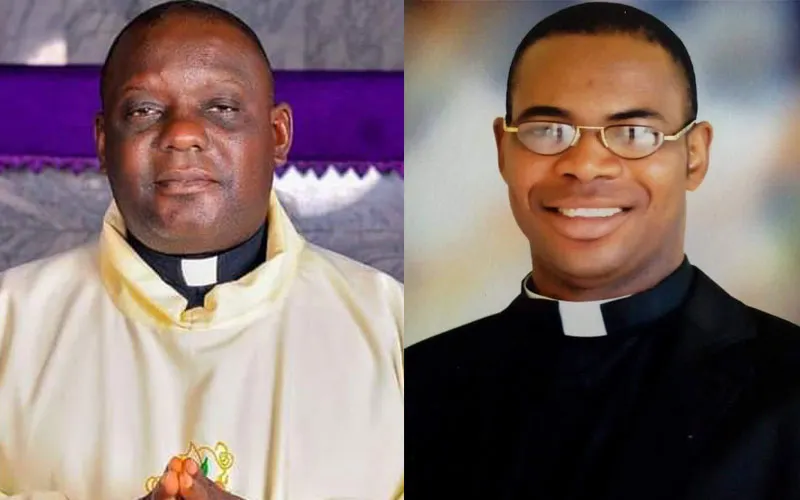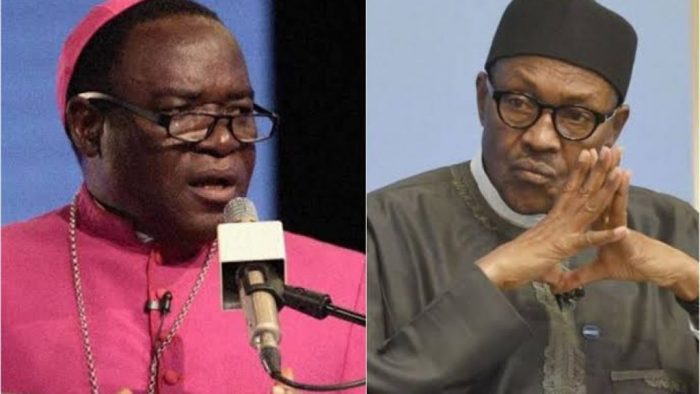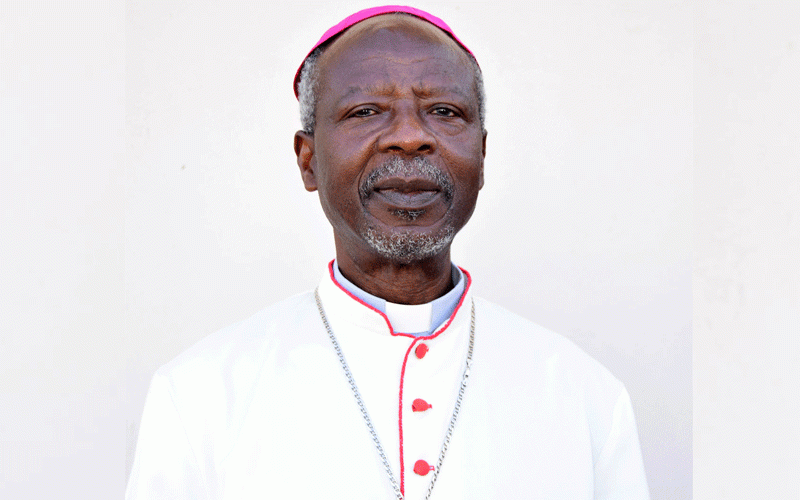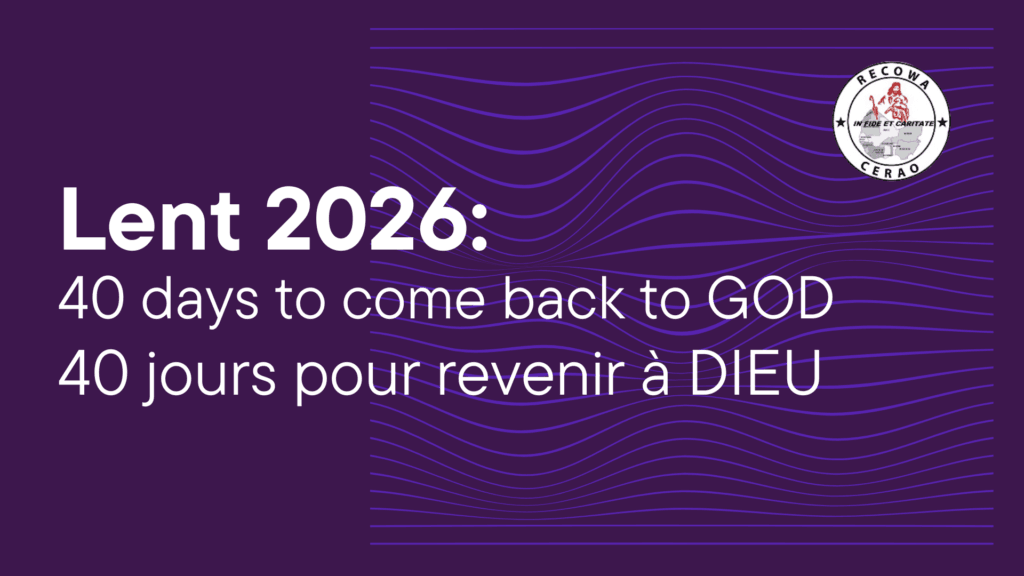
Alors que le monde sème quotidiennement la graine de la discorde, même parmi les personnes de la même appartenance religieuse, la RECOOWACERAO NEWS AGENCY a été heureuse d’assister à une initiative louable dans le lointain Kenya où les chefs religieux ont décidé de s’asseoir à côté d’eux et de parler à leur conscience.
Alors que les politiciens au Kenya poursuivent les rassemblements régionaux pour vulgariser la construction de ponts (BBI), un document contenant des recommandations sur la fin des conflits postélectoraux au Kenya, les chefs religieux de la nation est-africaine ont exprimé leurs inquiétudes concernant le discours de division que cette initiative semble prendre et recommandé la fin des rassemblements, préoccupations partagées par le président de la Conférence des évêques catholiques du Kenya (KCCB).
« Pour empêcher le pays de sombrer dans l’anarchie, nous recommandons fortement … que Son Excellence le président ordonne que les rassemblements politiques sur le BBI soient désormais arrêtés car ils polarisent la nation », lit en partie la déclaration publiée par les chefs religieux de Kenya jeudi 6 mars.
Réunis sous les auspices du Dialogue Reference Group (DRG) à la maison Ufungamano de Nairobi, les chefs religieux qui comprenaient l’archevêque Martin Kivuva de l’archidiocèse catholique de Mombasa ont déclaré dans leur message collectif vu par ACI Africa: «C’est une préoccupation majeure pour les Kenyans que le BBI, présenté comme une solution à la crise politique, est en train de déchirer le pays. »
Les signataires de la déclaration collective comprennent des représentants de l’Alliance évangélique du Kenya (EAK), du Conseil hindou du Kenya (HCK), de la Conférence des évêques catholiques du Kenya (KCCB) et du Conseil national des églises du Kenya (NCCK).
D’autres sont l’Organisation des Eglises Africaines Instituées (AIC), les Adventistes du Septième Jour (SDA) et le Conseil Suprême des Musulmans du Kenya (SUPKEM).
« Nous avons vivement observé l’évolution du débat national sur l’Initiative Building Bridges (BBI), et sommes profondément préoccupés par le fait que le pays ait été poussé à un état d’émotions politiques accrues, qui dans le passé ont été un précurseur de la violence et du chaos, »Déclarent les chefs religieux.
Ils attribuent la discorde constatée dans le pays au sujet de BBI à «l’ignorance omniprésente de la majorité des Kenyans» et exhortent le président du pays Uhuru Kenyatta à ordonner «qu’un programme complet d’éducation civique sur le rapport (BBI) du Groupe de travail soit mis en œuvre. immédiatement. »
Dans la déclaration de cinq pages, les chefs religieux s’inquiètent du processus de validation du rapport, déclarant que «la situation actuelle où la validation officielle du rapport a été englobée par les rassemblements de diversion organisés par les acteurs politiques est contraire au dialogue structuré que le Le Groupe de travail était censé servir de berger. »
Pour corriger l’anomalie, les dirigeants recommandent «que le Comité directeur sur la mise en œuvre de la construction de ponts vers un rapport du Groupe de travail sur le Kenya uni exécute de manière solide son mandat qui implique la validation du rapport du Groupe de travail et la formulation de recommandations pour sa mise en œuvre».
Avec la possibilité que le rapport BBI de 156 pages soit soumis à un référendum, les chefs religieux demandent au chef de l’Etat d’engager «le processus de pourvoi des postes vacants à la Commission électorale indépendante et délimitation des circonscriptions (IEBC) de la plus haute urgence», car il serait «irresponsable de la part de la direction politique de faire à nouveau subir au pays un changement acrimonieux de direction à l’IEBC comme cela s’est produit en 2016».
« Le Kenya mérite d’avoir un IEBC correctement constitué pour entreprendre l’examen mandaté par la Constitution des limites des unités électorales et organiser le référendum si l’on est appelé à effectuer les réformes nécessaires », ont déclaré collectivement les représentants de plus de 300 chefs religieux de différentes confessions au Kenya. Etat.
Faisant référence aux «référendums de division» de 2005 et 2010 qui n’offraient que les options collectives «oui» et «non» à l’ensemble des questions soumises au vote, les chefs religieux indiquent que si le pays organisait un référendum sur le BBI, «le les questions doivent porter sur des questions spécifiques et non sur un vote général oui ou non. »
Les dirigeants appellent ensuite les dirigeants politiques à renoncer à «une nouvelle manifestation publique d’une culture des insultes et du manque de respect les uns envers les autres», comme en témoignent les rassemblements du BBI, une tendance qui, selon eux, «érode gravement la moralité de nos enfants qui sont grandir en croyant que les insultes, le mudling et la violence sont des voies vers le succès. »
« Ce sont les valeurs que nous voulons dans cette nation? » les dirigeants sondent et ajoutent: « Nous ne perdons pas de vue que les politiciens se conduisent mal de cette manière, et chaque fois que les autres Kenyans se comportent comme eux, les institutions religieuses sont accusées de ne pas inculquer de valeurs au peuple. »
Nous rappelons à la Commission d’éthique et de lutte contre la corruption que «l’éthique», disent les chefs religieux, «ne concerne pas seulement la responsabilité financière, mais l’ensemble du spectre du comportement humain».
Le 5 décembre 2019, les chefs religieux ont approuvé le rapport de la BBI disant qu’il avait «de nombreuses recommandations qui pourraient transformer le Kenya en une nation meilleure». Les dirigeants ont également mis en garde contre les «débats conflictuels sur le rapport BBI» et ont exhorté le «gouvernement kenyan à parler comme un seul pour éviter de diviser le peuple».
S’adressant au journaliste de RECONA lors d’un événement distinct, le président de la KCCB, l’archevêque Philip Anyolo a reconnu que si l’intention initiale de BBI (paix et réconciliation) était une bonne chose, «la pire chose qui se passe est qu’elle est politisée et que la politisation signifie même ceux qui auraient pu le lancer à l’origine le regardent maintenant d’un autre point de vue. »
Il a ajouté: «C’est à nouveau un appel aux Kenyans à se regarder, vous savez, de quoi avons-nous vraiment besoin? Et comment l’obtenons-nous? Nous avons besoin de paix. Sans paix, vous savez, vous voyez comment nous allons économiquement, nous ne faisons pas bien, nous ne nous portons pas bien. »
Xxxxxxxxxxxxxxxxxxx
While the world is daily sowing the seed of discord even among people of the same religious belonging, RECOOWACERAO NEWS AGENCY was happy to witness a laudable initiative in faraway Kenya where religious leaders decided to sit beside themselves and speak to their consciences.
As politicians in Kenya continue with regional rallies to popularize the Building Bridges Initiative (BBI), a document with recommendations on ending post-election conflicts in Kenya, religious leaders in the East African nation have raised concerns over the divisive discourse that the initiative seems to be taking and recommended an end to the rallies, concerns shared by the Chairman of the Kenya Conference of Catholic Bishops (KCCB).
“To stop the country from sliding into anarchy, we strongly recommend … that His Excellency the President directs that the political rallies on the BBI be stopped henceforth since they are polarising the nation,” reads in part the statement issued by religious leaders in Kenya Thursday, March 6.
Meeting under the auspices of the Dialogue Reference Group (DRG) at Nairobi’s Ufungamano House, the religious leaders who included Archbishop Martin Kivuva of the Catholic Archdiocese of Mombasa stated in their collective message seen by RECOWACERAO NEWS AGENCY, “It is a major concern to Kenyans that the BBI, which was presented as a solution to the political crisis is now tearing the country apart.”
The signatories to the collective statement include representative of the Evangelical Alliance of Kenya (EAK), Hindu Council of Kenya (HCK), Kenya Conference of Catholic Bishops (KCCB), and the National Council of Churches of Kenya (NCCK).
Others are the Organisation of African Instituted Churches (AIC), the Seventh Day Adventist (SDA), and the Supreme Council of Kenya Muslims (SUPKEM).
“We have keenly observed the developments in national debate on the Building Bridges Initiative (BBI), and are deeply concerned that the country has been pushed to a state of heightened political emotions, which in the past have been a precursor of violence and chaos,” the religious leaders state.
They attribute the discord being witnessed in the country over BBI to the “pervasive ignorance of the majority of Kenyans” and urge the country’s President Uhuru Kenyatta to direct “that a comprehensive civic education program on the (BBI) Report of the Task Force be implemented immediately.”
In the five-page statement, the religious leaders raise concerns over the validation process of the report saying “the current situation where the formal validation of the Report has been subsumed by the diversionary rallies organized by political actors is contrary to the structured dialogue that the Task Force was meant to shepherd.”
To correct the anomaly, the leaders recommend “that the Steering Committee on the Implementation of the Building Bridges to a United Kenya Task Force Report robustly implements its mandate that entails validation of the Taskforce Report and making recommendations for its implementation.”
With the possibility of the 156-page BBI report being taken through a referendum, the religious leaders ask the head of state to initiate “the process of filling the vacancies in the Independent Electoral and Boundaries Commission (IEBC) with utmost urgency,” as it would be “irresponsible on the part of the political leadership to cause the country to once again go through an acrimonious change of leadership at the IEBC as happened in 2016.”
“Kenya deserves to have a properly constituted IEBC to undertake the constitutionally mandated review of the boundaries of electoral units, and conduct the referendum if one is called to effect necessary reforms,” the representatives of the over 300 religious leaders across different faiths in Kenya collectively state.
Referencing the “divisive referenda” in 2005 and 2010 that offered only the collective “Yes” and “No” options to the whole set of issues subjected to the vote, the religious leaders advise that should the country hold a referendum on BBI, “the questions should focus on specific issues and not an omnibus Yes or No vote.”
The leaders go on to call on political leaders to desist from “further public display of a culture of insults and disrespect of one another,” as witnessed in the BBI rallies, a trend they say is “grievously eroding the morals of our children who are growing up believing that insults, mudslinging and violence are pathways to success.”
“Are these the values that we want in this nation?” the leaders probe and add, “It is not lost on us that politicians misbehave in this manner, and whenever the other Kenyans behave like them, the religious institutions are accused of not inculcating values in the people.”
We remind the Ethics and Anti-Corruption Commission that, “Ethics,” the religious leaders say, “is not just about financial accountability, but the entire spectrum of human behaviour.”
On December 5, 2019, the religious leaders endorsed the BBI report saying it has “many recommendations that have the potential to transform Kenya to a better nation.” The leaders also cautioned against “divisive debates on the BBI Report” and urged the Kenyan “government to speak as one to avoid dividing the people.”
Speaking to RECONA news reporter at a separate event, KCCB Chairman, Archbishop Philip Anyolo acknowledged that while the initial intention of BBI (peace and reconciliation) was a good thing, “the worst thing that is happening is that it is being politicized and politicization means even those ones who might have started it originally are now looking at it from another point of view now.”
He added, “It is a call again to Kenyans to look at ourselves, you know, what do we really need? And how do we get it? We need peace. Without peace you know, you see how we are going economically, we are not doing good, we are not doing well.”
- CATHOLIC ARCHBISHOP IN GHANA HAILS POPE LEO XIV AS GOD’S GIFT - 23 mai 2025
- POPE LEO XIV TO APPROVE CANONIZATIONS - 22 mai 2025
- THE EVOLUTION OF PAPAL TRANSPORTATION - 20 mai 2025







